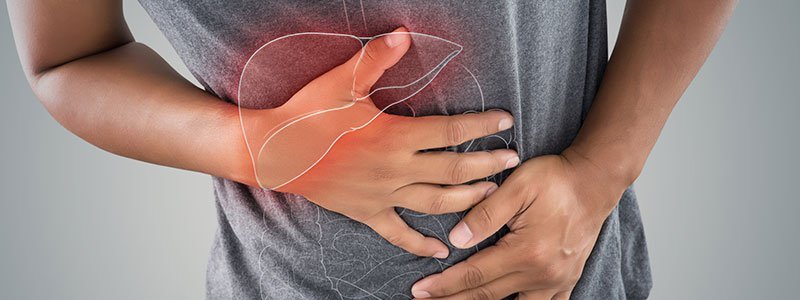What is the fastest way to recover from vomiting?

Vomiting can be a disarming — sometimes even violent — experience. Settle your stomach after vomiting by slowly easing your way into drinking clear fluids and eating mild foods.
Vomiting can be a disarming — sometimes even violent — experience. It’s an event that you likely want to end quickly and repeat as little as possible.
The fastest way to recover from vomiting will ultimately depend on the cause and your age. In all cases, though, the key is to make sure that you don’t do anything to further irritate your stomach. Then, it can settle down on its own.
In all instances of vomiting, you need to act slowly. Carefully monitor how you feel. Never make the mistake of drinking too much fluid too quickly or eating too much too soon after you vomit.
You will also want to make sure that you’re eating and drinking the right things. In general, stick to clear fluids and mild foods. Otherwise — even if you’ve waited the right amount of time — you’re more likely to feel nauseous and vomit again.
Vomiting in children — especially infants — can be particularly concerning for parents, but the general recovery steps are the same. Any specific exceptions or recommendations for children are noted below.
What can cause vomiting?
The fastest way to find a cure for your nausea is to figure out what’s causing you to vomit. Causes can vary by age.
In all age groups, gastroenteritis is a common cause of vomiting. In this case, your vomit is due to an infection in your digestive tract. You’ll often have to wait until the infection clears up before you feel better.
Food allergies can also cause vomiting at any age — but they’re more often diagnosed when you’re young. Cow’s milk is a common allergy in infants and children. In this case, you’ll need to identify the allergen and remove it from your — or your child’s — diet in order to stop the vomiting.
Other causes of vomiting in adolescents and adults include:
Some of these conditions — like brain tumors — will require their own treatment to ultimately cure your vomiting.
There are also a few rare and life-threatening reasons why your infant could be vomiting. Get your infant to the hospital as soon as possible if you don’t know what’s causing their vomiting.
Potentially dangerous causes include:
- Blockages in the stomach
- Blockages in the intestines
- Intussusception — a condition sometimes present in children aged three to 36 months old, as a result of which their intestinal segments slide into one another
How should you drink fluids after vomiting?
Vomiting can lead to dehydration — especially in children and infants. You need to make sure to keep your fluid levels high without irritating your stomach.
Adults and older children should wait about thirty minutes after the last time they vomited, then try to drink an ounce or two of a clear fluid. This is about the same as a large gulp. You can slowly start to drink more when your stomach tolerates this amount without feeling sick.
For infants, you should try to have them swallow a teaspoon of an oral rehydration solution every five minutes. These are balanced mixes of fluids that are widely available at supermarkets and pharmacies. Take a break if they can’t keep the solution down.
With persistence and patience, you should be able to get enough fluid into them that they won’t need medical attention for dehydration. Only switch back to their normal breast milk or formula when they’ve consumed plenty of solution and aren’t in danger of dehydrating or vomiting again.
Appropriate fluids for older age groups include:
- Plain water — frozen into ice chips if the cold fluid feels better
- Mild broth
- Weak, lightly sweetened tea
If you can handle these fluids, then you can also try beverages that are known to settle your stomach — like ginger ale and chamomile tea.
Sports drinks and non-citrus juices are acceptable for adults if your stomach can tolerate them, but you shouldn’t use these drinks for children — they have too many carbohydrates and too little salt for smaller bodies.
Everyone should avoid carbonated beverages and alcohol since they’re likely to upset your stomach even more.
Eating after vomiting
Don’t resume eating until after you’ve been able to keep liquids down for at least a few hours. Pay attention and eat when your body starts to feel hungry again.
Start with mild foods — like the BRAT diet — which stands for:
- Bananas
- Rice
- Applesauce
- Toast
Stick to small portions, and — even once you’ve started to feel better — avoid spicy, fried, and processed foods until you’ve completely recovered.
What are medications that help with nausea and vomiting?
Certain medications can treat persistent vomiting or help in situations that make you nauseous. Examples include:
These medications should only be taken with your doctor’s approval.
Of these, only the three prescribed for mild to moderate symptoms — and sometimes ondansetron — are given to children, and only those over two years old. Nevertheless, these drugs are rarely given to children because there isn’t a lot of data on how well they work.
Drugs are not used for nausea and vomiting in children under two years old.

QUESTION
Pancreatitis is inflammation of an organ in the abdomen called the pancreas. See Answer
Alternative methods to recover from vomiting
There are additional steps that you should also keep in mind after vomiting. These can help you feel better and reduce your chances of vomiting again.
Suggestions include:
- Getting rest. Avoid moving around a lot right after vomiting. Go lay down or sit in a position that feels the most comfortable for your stomach.
- Avoiding strong odors. The exact odors to avoid will be specific to you and your environment.
- Trying essential oils. There is some scientific evidence that intentionally inhaling ginger or peppermint essential oils can immediately soothe your nausea and vomiting. More research is needed to confirm these early results, though.
Should you worry about your teeth when you vomit?
When you vomit, stomach acid comes in contact with your teeth. This acid is strong enough to damage them, so you want to get it off as soon as possible.
Many people want to brush their teeth immediately after vomiting, but this isn’t helpful. It actually spreads the stomach acid around your mouth and grinds it into your teeth.
Instead, swish water or mouthwash around your mouth and spit it out. You can also rinse your mouth out with water mixed with one teaspoon of baking soda — a base — to help remove the acid.
Brush your teeth about 30 minutes after you rinse.
When should you see a doctor?
See a doctor if your vomiting is severe or if your nausea lasts for an extended period of time. Children and infants will need medical attention if the vomiting doesn’t stop or if you’re concerned about a serious underlying condition.
Latest Digestion News
Daily Health News
Trending on MedicineNet
Medically Reviewed on 6/3/2022
References
Journal of Alternative and Complementary Medicine: “A brief review of current scientific evidence involving aromatherapy use for nausea and vomiting.”
Merck Manual: “Nausea and Vomiting in Adults,” “Vomiting in Infants and Children.”
Mouth Healthy: “Cold and Flu Season: 5 Ways to Care For Your Mouth When You’re Sick.”
Stanford Health Care: “Treatments for Nausea and Vomiting.”
University of Michigan: “Diarrhea and Vomiting.”
University of Rochester Medical Center: “What You Need To Know About Vomiting.”